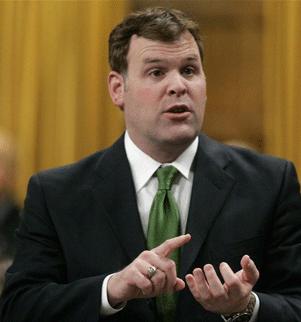Despite Canadian government claims that progress was achieved, the Commonwealth Heads of Government meeting in Perth, Australia, was unable to bring about an agreement to decriminalize homosexuality or create a human-rights monitor.
The meeting of the heads of state of 54 Commonwealth countries, held between Oct 28 and 30, was mostly notable in its failure to make progress on human rights issues.
Leaders rejected most recommendations put forward by the Eminent Persons Group (EPG), which was launched at the 2009 Commonwealth meeting to help enable the body to better cooperate on human rights issues, including the decriminalization of homosexuality.
Commonwealth heads of state have also been criticized for refusing to publish the EPG report and its recommendations.
However, Foreign Affairs Minister John Baird declared on Oct 31 that progress had been made.
“Canada was the loudest voice on this issue in Perth,” Baird told the House of Commons. “We spoke out strongly against it. It is very clear, regrettably, that we will not see immediate changes in this regard, but it will be important that we continue to push for human rights, whether it is for gays and lesbians, whether it is for religious freedom, whether it is for women, whether it is for other persecuted minorities.”
Meanwhile, British Prime Minister David Cameron has said the UK may pull aid from those countries that continue to ban homosexuality.
“I guess we’ve become the biggest failure if we raised the loudest voice and got nothing,” says Randall Garrison, NDP critic for lesbian, gay, bisexual, transgender and transsexual issues. “I don’t see any progress at all, and I don’t see any plan for what Canada’s going to do about this in the future.”
Liberal interim leader Bob Rae demanded that the Commonwealth Eminent Persons Group Report be made public, saying it would be unconscionable if any part is withheld.
“All of us are very troubled by the fact that we don’t seem to be able to get even the most basic agreement about human rights in the Commonwealth,” Rae says. “You begin to wonder, beyond an interesting social club, what is it? If it’s not a group that can agree on the meaning of democracy and the meaning of human rights, clearly you’ve got a major problem.
“At the very least, we need to see the document and be part of the full discussion,” Rae says. “You can’t have these discussions behind closed doors – it needs to be debated publicly in every country.”
Garrison, however, says the report’s contents have already been thoroughly leaked, so he won’t make a formal call for its release.
Instead, Garrison plans to speak personally with Baird about what was accomplished.
“We’ll be offering some suggestions, and we’ll probably be doing those publicly very soon,” Garrison says.


 Why you can trust Xtra
Why you can trust Xtra


